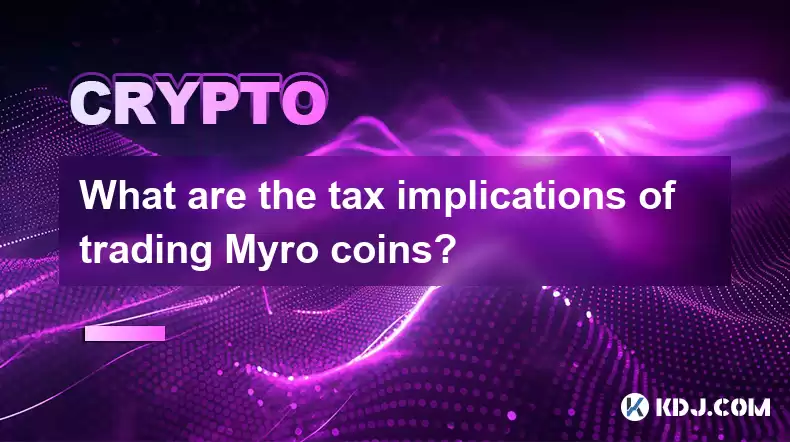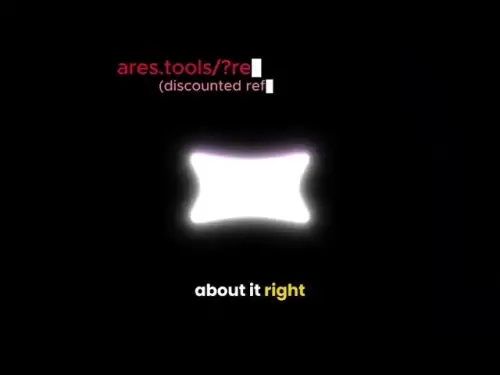-
 Bitcoin
Bitcoin $117400
1.93% -
 Ethereum
Ethereum $3747
3.63% -
 XRP
XRP $3.157
3.09% -
 Tether USDt
Tether USDt $1.000
0.02% -
 BNB
BNB $783.3
3.19% -
 Solana
Solana $186.6
5.64% -
 USDC
USDC $0.9999
0.01% -
 Dogecoin
Dogecoin $0.2375
5.42% -
 TRON
TRON $0.3185
1.32% -
 Cardano
Cardano $0.8191
3.28% -
 Hyperliquid
Hyperliquid $44.43
5.76% -
 Sui
Sui $3.995
9.84% -
 Stellar
Stellar $0.4396
6.27% -
 Chainlink
Chainlink $18.26
4.83% -
 Hedera
Hedera $0.2646
11.88% -
 Bitcoin Cash
Bitcoin Cash $553.5
5.55% -
 Avalanche
Avalanche $24.13
4.73% -
 Litecoin
Litecoin $113.3
1.77% -
 UNUS SED LEO
UNUS SED LEO $8.975
0.11% -
 Shiba Inu
Shiba Inu $0.00001405
5.69% -
 Toncoin
Toncoin $3.319
7.46% -
 Ethena USDe
Ethena USDe $1.001
0.02% -
 Uniswap
Uniswap $10.44
4.98% -
 Polkadot
Polkadot $4.098
4.31% -
 Monero
Monero $328.6
1.87% -
 Dai
Dai $1.000
0.01% -
 Bitget Token
Bitget Token $4.561
2.76% -
 Pepe
Pepe $0.00001261
5.29% -
 Aave
Aave $296.8
4.02% -
 Cronos
Cronos $0.1335
3.28%
What are the tax implications of trading Myro coins?
Individuals trading Myro coins should consider holding them for over a year to qualify for lower long-term capital gains tax rates and accurately report all transactions to avoid penalties and interest charges.
Dec 28, 2024 at 01:16 pm

Key Points:
- Overview of Tax Treatment of Cryptocurrency Trading
- Specific Tax Considerations for Myro Coin Trading
- Reporting and Compliance Requirements for Myro Coin Transactions
- Strategies for Minimizing Tax Liability
- Common Tax Pitfalls to Avoid
- FAQs Related to Myro Coin Tax Implications
Tax Implications of Trading Myro Coins
1. Overview of Tax Treatment of Cryptocurrency Trading
- Cryptocurrency trades are generally treated as property transactions for tax purposes.
- Gains or losses from Myro coin sales are subject to capital gains tax or losses, based on whether the coins are held for investment (long-term) or trading (short-term).
- Capital gains tax rates vary depending on income level and the holding period of the coins.
2. Specific Tax Considerations for Myro Coin Trading
- Myro coins are not classified as "securities" under U.S. law, so they are not eligible for preferential tax treatment under the Securities Exchange Act of 1934.
- Myro coins are classified as "property" under the U.S. Internal Revenue Code, meaning that they are subject to general capital gains tax rules.
- The "wash sale rule" applies to Myro coins, meaning that losses from selling Myro coins within 30 days of a previous purchase may not be deductible.
3. Reporting and Compliance Requirements for Myro Coin Transactions
- Individuals are required to report all Myro coin transactions on their tax returns, regardless of the amount or gain/loss involved.
- Taxpayers must calculate their cost basis for Myro coins, which is used to determine the amount of gain or loss subject to tax.
- Exchanges that facilitate Myro coin trading may provide taxpayers with transaction records to assist with tax reporting.
4. Strategies for Minimizing Tax Liability
- Hold Myro coins for more than one year before selling them to qualify for long-term capital gains tax rates (typically lower).
- Consider using a tax-advantaged account, such as a Roth IRA, to hold Myro coins and defer capital gains taxes.
- Engage a qualified tax professional to provide personalized advice on tax strategies and compliance.
5. Common Tax Pitfalls to Avoid
- Failing to report Myro coin transactions on tax returns can result in penalties and interest.
- Incorrectly calculating cost basis can lead to underpayment or overpayment of taxes.
- Selling Myro coins within 30 days of a previous purchase can trigger the "wash sale rule" and result in disallowed losses.
FAQs Related to Myro Coin Tax Implications
Q: Are Myro coins considered "securities" for tax purposes?
A: No, Myro coins are classified as "property" under U.S. tax law.
Q: What is the long-term capital gains tax rate for Myro coins?
A: The long-term capital gains tax rate for Myro coins varies depending on income level and is typically lower than the short-term capital gains tax rate.
Q: What is the "cost basis" for Myro coins?
A: The cost basis is the original purchase price of Myro coins, plus any additional costs incurred to acquire them, such as transaction fees.
Q: Can I use a Roth IRA to hold Myro coins and defer capital gains taxes?
A: Yes, you can contribute Myro coins to a Roth IRA, but you must follow the IRS rules for eligible contributions and distributions.
Q: What are the potential penalties for failing to report Myro coin transactions on tax returns?
A: Failing to report Myro coin transactions can result in penalties and interest, as well as potential criminal charges for willful neglect.
Disclaimer:info@kdj.com
The information provided is not trading advice. kdj.com does not assume any responsibility for any investments made based on the information provided in this article. Cryptocurrencies are highly volatile and it is highly recommended that you invest with caution after thorough research!
If you believe that the content used on this website infringes your copyright, please contact us immediately (info@kdj.com) and we will delete it promptly.
- Wall Street's Bitcoin Bonanza: ETF Filings Signal Crypto's Coming-Out Party
- 2025-07-26 15:10:12
- Bitcoin, Cynthia Lummis, and Freedom Money: A New York Perspective
- 2025-07-26 15:10:12
- Bitcoin, Altcoin Season, and Market Shift: What's the Deal?
- 2025-07-26 14:30:12
- PEPE, Altcoins, and Bitcoin: Navigating the Meme Coin Mania in 2025
- 2025-07-26 14:30:12
- UAE's Digital Asset Revolution: Stablecoin Regulations Take Center Stage
- 2025-07-26 10:40:11
- Whale Transactions and ENA Token: Decoding the Withdrawal Dynamics
- 2025-07-26 14:50:12
Related knowledge

What is Chainlink (LINK)?
Jul 22,2025 at 02:14am
Understanding Chainlink (LINK): The Decentralized Oracle NetworkChainlink is a decentralized oracle network designed to bridge the gap between blockch...

What is Avalanche (AVAX)?
Jul 22,2025 at 08:35am
What is Avalanche (AVAX)?Avalanche (AVAX) is a decentralized, open-source blockchain platform designed to support high-performance decentralized appli...

What is Polkadot (DOT)?
Jul 19,2025 at 06:35pm
Understanding the Basics of Polkadot (DOT)Polkadot (DOT) is a multi-chain network protocol designed to enable different blockchains to transfer messag...

What is Litecoin (LTC)?
Jul 23,2025 at 11:35am
Overview of Litecoin (LTC)Litecoin (LTC) is a peer-to-peer cryptocurrency that was created in 2011 by Charlie Lee, a former Google engineer. It is oft...

What is Monero (XMR)?
Jul 21,2025 at 10:07am
What is Monero (XMR)?Monero (XMR) is a decentralized cryptocurrency designed to provide enhanced privacy and anonymity for its users. Unlike Bitcoin a...

How to add indicators to Ethereum chart on TradingView?
Jul 19,2025 at 07:15am
What Is an Ethereum Chart on TradingView?The Ethereum chart on TradingView is a visual representation of the price movement of Ethereum (ETH) over a s...

What is Chainlink (LINK)?
Jul 22,2025 at 02:14am
Understanding Chainlink (LINK): The Decentralized Oracle NetworkChainlink is a decentralized oracle network designed to bridge the gap between blockch...

What is Avalanche (AVAX)?
Jul 22,2025 at 08:35am
What is Avalanche (AVAX)?Avalanche (AVAX) is a decentralized, open-source blockchain platform designed to support high-performance decentralized appli...

What is Polkadot (DOT)?
Jul 19,2025 at 06:35pm
Understanding the Basics of Polkadot (DOT)Polkadot (DOT) is a multi-chain network protocol designed to enable different blockchains to transfer messag...

What is Litecoin (LTC)?
Jul 23,2025 at 11:35am
Overview of Litecoin (LTC)Litecoin (LTC) is a peer-to-peer cryptocurrency that was created in 2011 by Charlie Lee, a former Google engineer. It is oft...

What is Monero (XMR)?
Jul 21,2025 at 10:07am
What is Monero (XMR)?Monero (XMR) is a decentralized cryptocurrency designed to provide enhanced privacy and anonymity for its users. Unlike Bitcoin a...

How to add indicators to Ethereum chart on TradingView?
Jul 19,2025 at 07:15am
What Is an Ethereum Chart on TradingView?The Ethereum chart on TradingView is a visual representation of the price movement of Ethereum (ETH) over a s...
See all articles

























































































